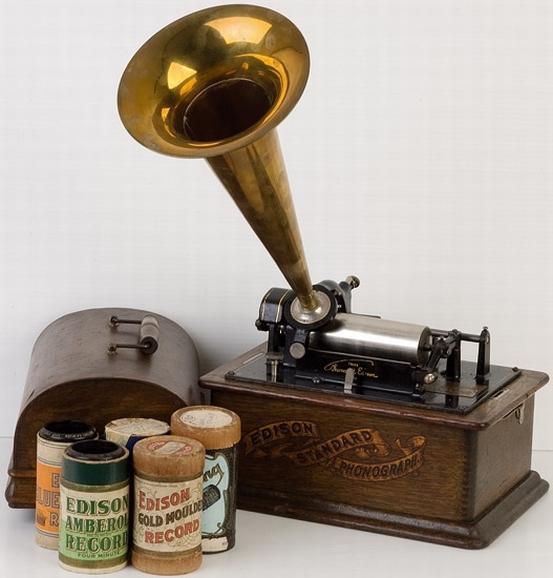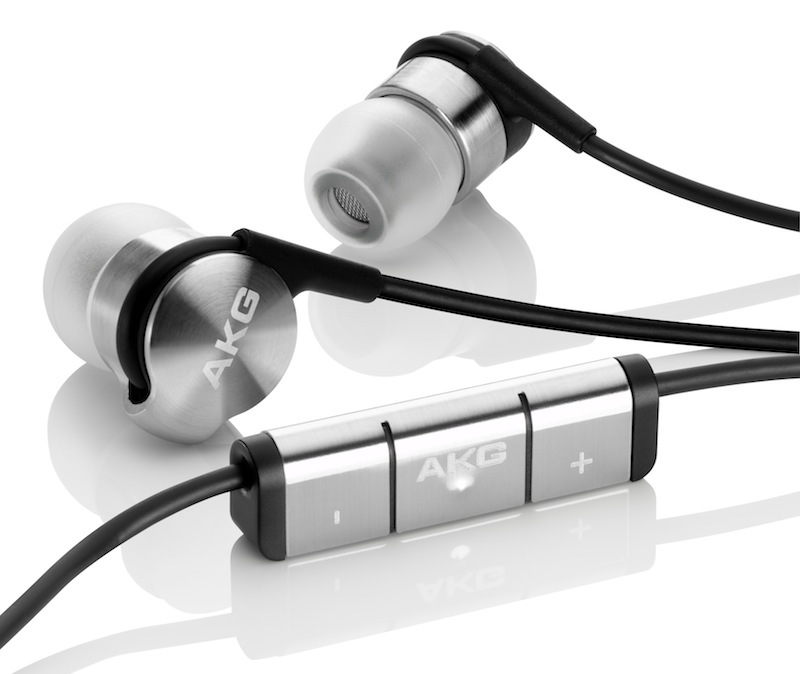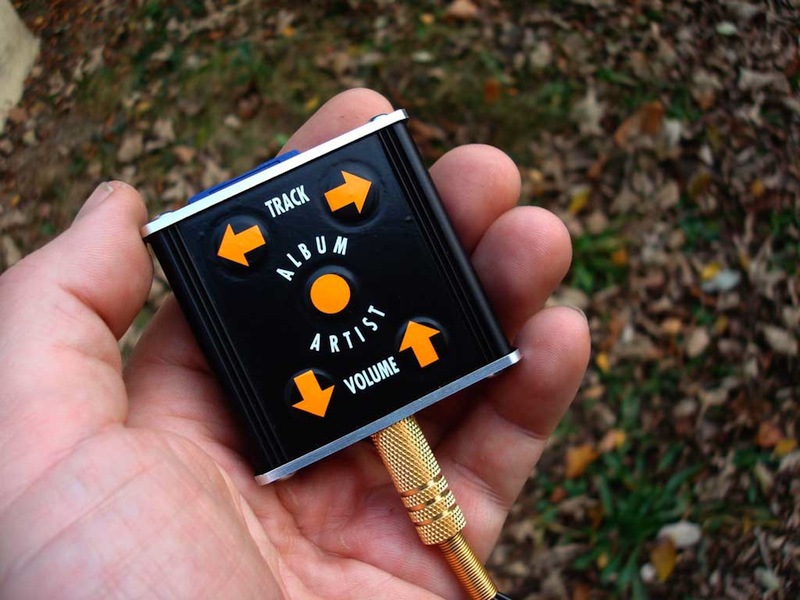Quality vs. high: what is really important in audio technology?
 Actually, I wanted to name this post "How I bought headphones for 40 thousand rubles." But he didn’t, because it would not be true: he didn’t buy it, although he was seriously planning to. The idea of this post has been spinning in my head for a long time, ever since I wondered: what are the best headphones I can buy for my budget (the budget then was about seven hundred rubles). And the speakers? What about the amplifier? Do I need a SACD and DVD-Audio disc player or is the physical media dead and the music streaming services correct the ball? Or maybe vinyl? It’s warm and lamp-like, and the needle rustles in the grooves while you look at a decent-sized envelope ...
Actually, I wanted to name this post "How I bought headphones for 40 thousand rubles." But he didn’t, because it would not be true: he didn’t buy it, although he was seriously planning to. The idea of this post has been spinning in my head for a long time, ever since I wondered: what are the best headphones I can buy for my budget (the budget then was about seven hundred rubles). And the speakers? What about the amplifier? Do I need a SACD and DVD-Audio disc player or is the physical media dead and the music streaming services correct the ball? Or maybe vinyl? It’s warm and lamp-like, and the needle rustles in the grooves while you look at a decent-sized envelope ...I can’t say that I want to put an end to holivars. Quite the contrary, I want to start another one. After all, if a discussion of plastic boxes with a small speaker inside and copper wiring in three different forums contains as much text as War and Peace, then what am I worse? What is my purpose? Yes, it’s very simple: since the headphone problem for 700 rubles was somehow solved, many other problems appeared. Should I buy high-resolution releases on HDTracks or can I get by with the convenient iTunes Store? Is listening to internet radio an insult to my sensitive audiophile ears? How much does an ideal player and ideal speakers cost? I wanted to develop a certain position, to indicate my attitude to various instruments for listening to music, and to continue living on it. I think I did it. I want to share this position with you, and at the same time find out how wrong I am. Wellcome to cat! I warn you in advance that I will be verbose, sentimental and obese.
Summary of the post
My position is that the human ear is the most inaccurate sense organ of all available to us. We have good vision: proof of this is the almost complete disappearance of non-HD TVs. But how much it was! We have a good sense of smell. A wonderful sense of touch, let alone taste ... But the rumor was disappointing. More precisely, he is not so critical of the material. He is able to distinguish a record (any) from a live performance, but does not mind if the form sucks and the content is cool. Therefore, the purchase of super-expensive hearing aids is not the right investment. When choosing a technique (any) for sound reproduction, decide how much you are willing to spend on it. And don't bother with everyone else. Now the full version, and we will start with the story.
A common history, part 1
The story began in 1877, when Thomas Edison, testing another model of the telegraphic morse code recorder, suddenly discovered that it can be used to record an ordinary human voice. Edison Rollers appeared a little later:

Extremely fragile, short-lived, terribly sounding first samples of musical recordings, great-grandfathers of CDs and CDs. Edison's rival Emil Berliner realized that flat plates, unlike rollers, are much easier to mass produce. Edison, known not only for his innovations, but also for the active use of PR technologies to protect against competitors, insisted on the incomparably better quality of the rollers in terms of sound. Does this remind you of anything? Dada, this was the first audiophile holivar in the world. The first records were really terrible, but the rollers were not much different. Imagine, in the end, that the technology of the beginning of the 20th century was based on the movement of a natural such nail along huge ditches on the surface of a cylinder or a thick disk. If the nail moved fast enough,
Over the past hundred years or more, not a single music lover has succeeded in restricting himself to the only bearer of music (and later, in digital format). There were dozens of carriers. Before the generation of baby boomers managed to assemble an impressive collection of phonograph records, very convenient (ha!) Tape recorders appeared. They were replaced by compact cassettes, while the records have not disappeared, because they sounded better. Then came the CDs on which the history of physical media seems to have ended, despite attempts to create a “supercarrier” like Super Audio CD or DVD-Audio. And how many concepts were losers? Has anyone heard of the 8-track format ? And what about the Digital Compact Cassette ? And they were!

In the late 90s, the first sane digital MP3 format finally appeared, and that was cool: music freed from media! It is still said that compressed music sounds disgusting, and it may be so, but in the early 2000s it did not greet those who gathered an impressive collection of pirated MP3s. Lossless formats appeared: CD-quality without losses! And your Winchester is now large enough to accommodate many albums. Oops, not really. The first compact music players could and could play lossless music, but in the 5 gigabytes of space on the first iPod, it was better to record MP3s. And then there were music services with a monthly subscription "for everything" instead of paying for individual tracks. And it became completely incomprehensible what to do. For many, the idea of “collecting” music has become completely irrelevant: why collect it, if you can listen to anything and anywhere, at least for money, at least for that? But no, music lovers remained in some places.
A personal story
In 1994, I could afford to buy one cassette per month. It was a religion. And the cassette stall in the central market of a provincial town was her temple. I approached him, and for an hour, or even two, I decided what to buy today. Familiar or new? Rock or electronics? Domestic or foreign? In the end, a difficult choice was made, and I listened to a new tape in my Walkman portable player all month. Before buying the next one. I listened to this chewed magnetic tape in not the best device, in cheap headphones, in a noisy street, and experienced such a thrill from listening that I probably will never experience it again.

10 years later, I sat in the showroom of one major high-end distributor and listened to Pink Floyd on a $ 500,000 system. There was a vinyl player. Preamplifiers. Tube amplifiers, four pieces included in the biamping system, 800 watts each. Classic speakers with silk tweeters and paper woofers. All this together sounded divine. I was afraid that I would no longer be able to listen to my compact CD-player with inexpensive headphones, earplugs (700 rubles!). But nothing - I could. And it was, in general, normal.
The story is common, part 2
The beginning of the two thousandth was generally a strange time. Adherents of obsolete views still clung to life: for example, Sony released an unnecessary Hi-MD media. Koreans and later Chinese riveted rather mediocre, but still revolutionary MP3 players. He was preparing for the release of the iPod, which should turn the entire industry upside down. The forums agreed that MP3 is slag, CD is no longer a cake, but there is no substitute for it.
But somehow quickly everything changed. The concept of a separate “music” player ceased to exist in principle. The vast majority of people were satisfied with smartphones playing music from VKontakte. Owners of expensive audio equipment are no longer satisfied with the need to constantly change discs and turn over records. But for them, they suddenly began to release a huge range of expensive, modern audio equipment:
Expensive sound cards for outputting music from a computer

Even more expensive personal audio players

Airplay-enabled home receivers

And finally, what this post was written for. Headphones with a crazy price tag.

All this is equipped with cables at $ 100 per meter, leather covers and titanium anti-vibration spikes. The period of market vacuum when you could buy either a bad MP3 player or a good but outdated CD player has passed. Has it gotten better?
It became incomprehensible.
For example, you want to buy a portable music player. Which to choose? Well, first of all, it does not make sense to listen to VKontakte - the phone will do it. And if you want more? Should it support high resolution audio formats? CUE files? Should I communicate via computer via Bluetooth, and if so, by what protocol? And in general, is it a matter of formats? Maybe you should think about the sound quality, as well as the brand of capacitors used in the player? Do you need a “double mono” system or is a regular one also suitable? Are you concerned about the low voltage of the built-in battery? And what about the excessively high output impedance, dramatically changing the frequency response of low impedance headphones? My friend once approached me with the question of choosing a compact player with high sound quality, sending links to insanely expensive and terribly inconvenient devices. For example, such (1700 euros with delivery from Germany):

I answered her something from the series: you need to listen to music, not devices. Yeah.
So maybe iPhone will suit everyone?
Actually, the position.
I enjoy listening to music from a smartphone, although at home I have a system with a cost and complexity that exceeds it by an order of magnitude. Super Audio CD and vinyl get along nicely in my music universe with MP3s from Google Play Music. I listen to music: in the format that suits the moment. It is much more important for me to have access to my favorite album when I want to listen to it, rather than the recording format and characteristics of the system for listening. Sometimes I even take out my old Walkman and, wiping away a tear, listen to the taped-down cassette collections of songs of my youth, and I'm fine. I know that technology is not the main thing.
And I suffered this knowledge, having spent quite a lot of money on equipment at various levels. I can value quality. But on the subject of “quality” as a kind of ideal to which we must strive, I do not recognize. I buy or don’t buy equipment, I pay for digital music and physical media based on the following recommendations to myself:
- The cost of an audio system (whether stationary or portable) is determined only by the means available to you. You can buy a smartphone, and the built-in music player will cost you free of charge. You can buy a player for 100 thousand rubles:

This does not mean that the player for 100 thousand rubles will bring you infinitely greater pleasure. Pleasure - it is generally not determined by technology.
- High-definition formats (by convention, everything is cooler than the 44kHz / 16bit CD format) is more marketing than real use. Come hereand listen in good headphones to sound at frequencies from 22 to 10 kilohertz. If you are not 15 years old, you most likely will not hear anything higher than 15-16 kilohertz (or hear tips from a fig DAC in your laptop). Then what is the point of talking about supporting frequencies above 22 kilohertz? Excuse me, bat? It should be understood that a) a technique that supports HD formats is sometimes generally better than a technique that does not support them and b) music in HD format sometimes sounds better than regular music, even if it is compressed to MP3.
- Even with the best quality technology, your favorite album can sound disgusting, simply because it is disgustingly recorded, and you can’t do anything about it (this is such a rich topic that it deserves a separate post).
- In any audio system, the most important is the transition from an electrical signal to air vibrations. That is, most of the money you need to spend is not on a player or amplifier, but on speakers and headphones. Of course, the headphones should match the player: the super-cool Sennheiser HD800 will play with the iPhone very well, but very quietly. The power of the amplifier in the smartphone will simply not be enough.
- If you have a lot of music, then the convenience of managing your collection is no less important than the sound quality. In other words, an old 160 gigabyte iPod Classic might be more useful than a fancy player with capacitors from tears of virgins, but with 32 gigabytes of non-expandable memory. Just because more music will fit into the iPod.
- Vinyl doesn't sound any better ; it sounds different. And this very “different way” is determined by the objective shortcomings of vinyl records as a carrier. Noise, crackling, the need to spoil the frequency balance and then restore it - these are all the components of that warm tube sound. And this is normal. I really love vinyl, because it corresponds to the musical era of which I am a fan. Tom Waits, Pink Floyd and Deep Perple originally sounded rustling, creaking and high-pitched, and what the hell was a great time!
- Physical media today is pointless to buy. At a minimum, it makes no sense to buy them to listen to music. To collect the media themselves - completely.
About not perfect hearing
I want to finish my undermining of foundations with the same where I started. Why do I think that human hearing is not worthy of the titanic engineering efforts that are put into high-quality sound? I have no scientific evidence (I'm generally a humanist). But there is an important logical conclusion: if a cassette player with a dead battery and a chewed cassette brings no less joy than the most expensive audio system in the world, then the system does not matter.
Does this mean that I’m ready right now to throw out my entire home audio system, sending after my mobile equipment with headphones, and return to compact cassettes? Of course not, primarily because it is inconvenient. But if such a cataclysm happens in my life that I am left alone with my ancient player and a couple of self-written collections, then nothing terrible will happen. At first I will be horrified at how dull and uneven my old cassettes sound. And then I'll get used to it. And this, in fact, is not a flaw in my hearing, but a virtue. Our ears can enjoy beautiful music even in the most terrible technical conditions. Isn't that great?
Music lovers, admit how important music is to you? And how important is the technique?
